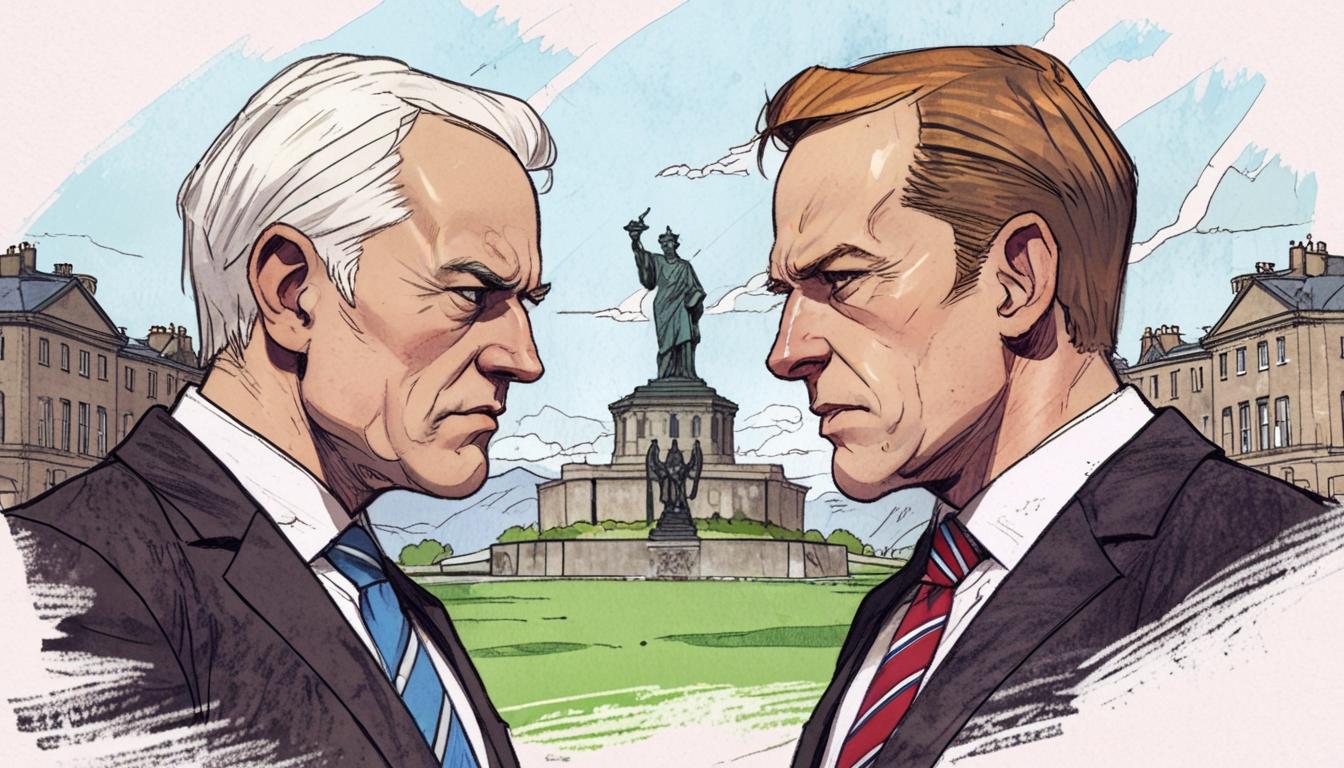In a rapidly evolving political landscape, the leader of a prominent right-wing party is positioning his faction as a formidable force in Scottish politics, despite not having contested an election in Scotland. Following a significant victory in local elections across England, where this party virtually eclipsed both Labour and the Conservatives, recent polls suggest they could secure a noteworthy presence in May's Holyrood election, potentially winning 15 or more seats.
First Minister John Swinney has publicly expressed alarm at the prospect of this party’s growing influence in Scotland. Recently, he convened a meeting of various political and civic leaders to address what he describes as the "dangers of the populist right," implicitly referencing the leader's rising prominence. Swinney's concerns about the possibility of such an individual becoming Prime Minister highlight a “very real possibility” of an unsettling future for the electorate, leading to his "fear of what lies ahead."
Despite Swinney's stated apprehensions, analysts suggest he may actually benefit from the rise of this party, as it could siphon votes away from traditional Unionist factions like Labour and the Conservatives. This intersection of political interests between Swinney and the right-wing leader reveals a complex dynamic; both appeal to nationalism, albeit from diverging viewpoints. The adversarial tone they maintain against one another only serves to galvanise their respective movements, with Swinney attempting to present himself as the moral alternative to the rising populist tide.
Critics argue that Swinney and the right-wing leader share fundamental similarities, despite their public posturing. Both are adept at exploiting division, making bold claims to rally their bases and appealing to identity among supporters. This intricate political narrative underscores a co-dependent relationship—each can leverage the other's rise or fall to reinforce their position. Swinney has previously pointed out the "absolutely spectacular failure" of Labour and Conservative parties in addressing the underlying sentiments that have paved the way for figures like the populist leader.
The upcoming Holyrood election in May 2026 presents a critical battleground. While Scottish Labour is historically the primary opponent to the SNP, much of the political discourse may revolve around the potential gains of this right-wing party. Fractures within the political landscape could witness traditional SNP and Labour supporters shifting their allegiance, particularly given the decisive stance on issues like women's rights that resonates with disillusioned voters.
As Scotland navigates this complicated political terrain, the implications of the right-wing party's rise are profound. Its messaging and ability to mobilise support in England seem to have now crossed the borders into Scotland. The potential presence in Holyrood raises critical questions about the future of Scottish politics and highlights the formidable challenges that traditional parties may face in retaining voter support amidst shifting sentiments.
The situation remains fluid as parties gear up for the upcoming elections. In a climate marked by heightened emotions and entrenched divisions, both the right-wing leader and Swinney are likely to exploit their positions to achieve their political aspirations. With increasing conversations around identity, nationalism, and the repercussions of populist rhetoric, the political landscape in Scotland appears poised for significant upheaval as the next election approaches.
Source: Noah Wire Services
